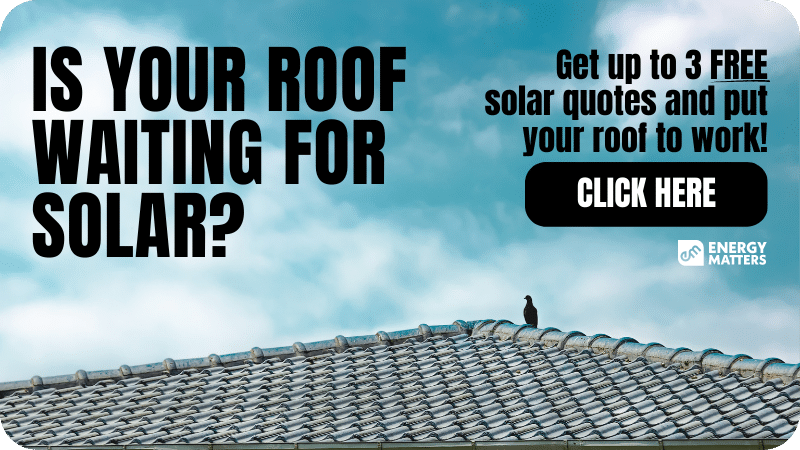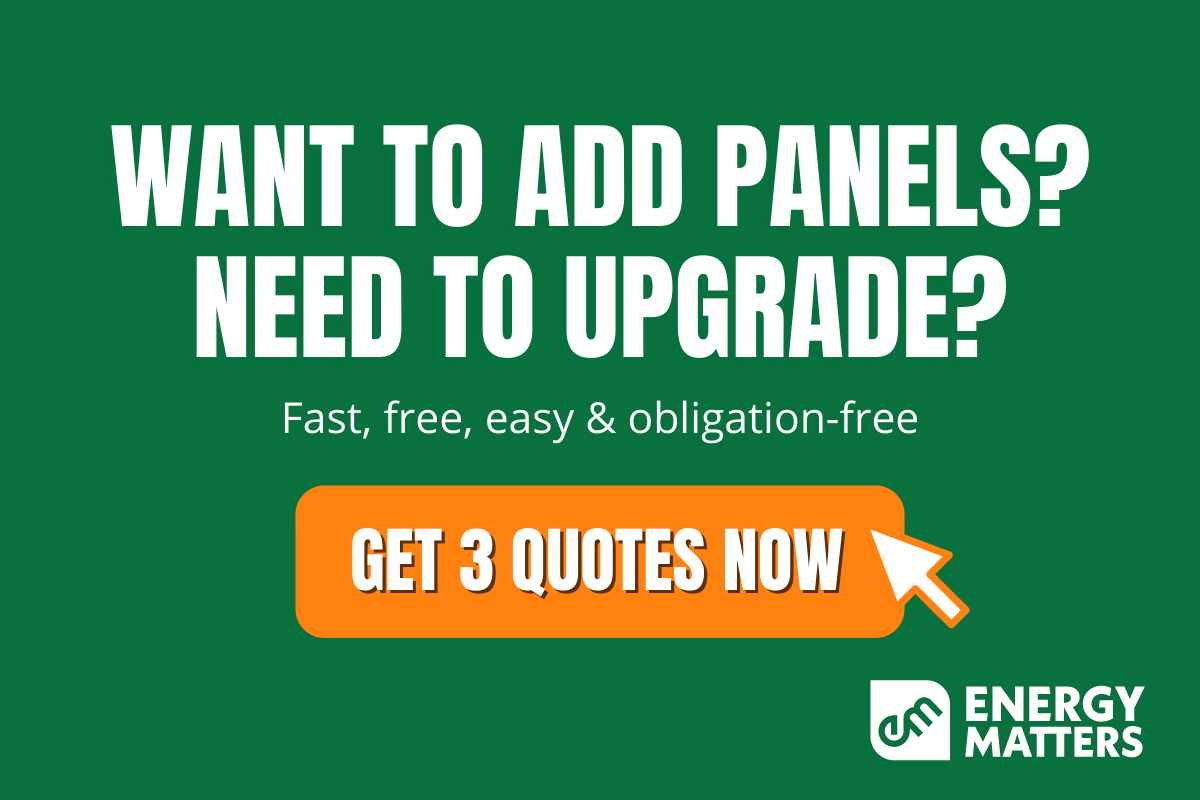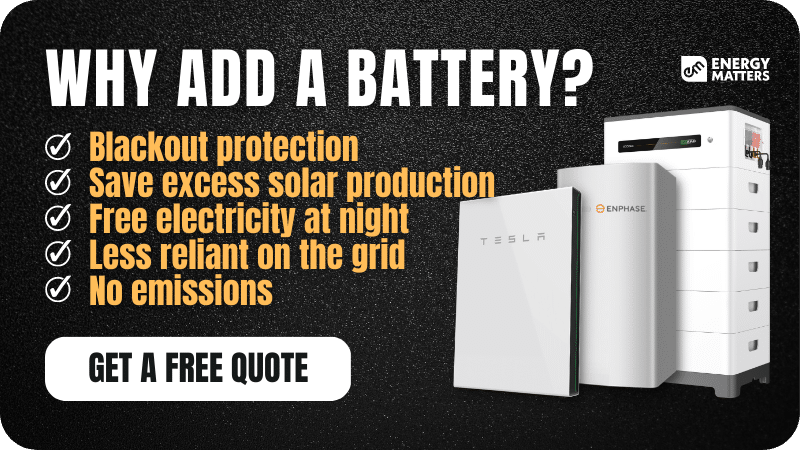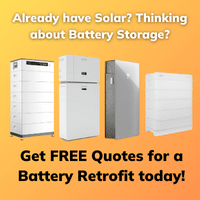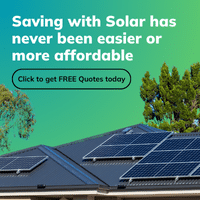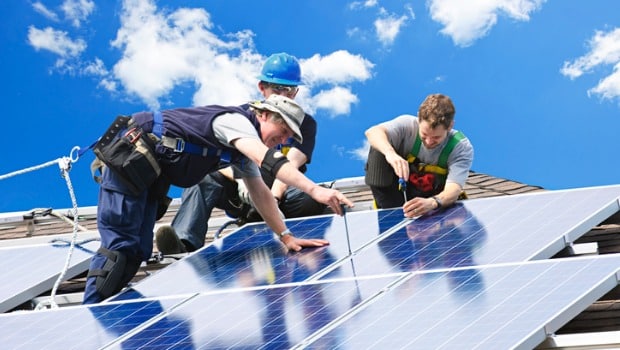
On This Page
Buying a home solar power system can be a very exciting experience, but don’t get too carried away by advertising. Be sure to focus on the important aspects of your purchase as it’s a substantial investment and one you’ll be living with for a long time. The following are some buying solar tips on what to look for when purchasing a system.
Should I get solar panels and what to consider when buying solar panels?
If you’re living in Australia, getting solar panels can be a great investment. Australia is known for its abundant sunshine, making it an ideal location for generating solar power. In addition, electricity prices in Australia are among the highest in the world, which means that a solar power system can help you save money on your electricity bills over time. Moreover, the Australian government offers incentives for homeowners who install solar power systems, making it an even more attractive option. However, it’s important to carefully consider your energy needs, the cost of the system, and other factors before making a decision.
Solar buying guide
If you’re considering buying a solar power system, it’s important to have a guide to help you make an informed decision. A good solar buying guide in Australia should cover factors such as determining your energy needs, understanding solar panel efficiency, checking for government incentives, researching solar panel brands, considering the warranty, finding an experienced installer, getting multiple quotes, considering the cost, planning for maintenance and planning for the future. By following a comprehensive solar buying guide, you can ensure that you choose a solar power system that meets your energy needs, fits within your budget and is installed by experienced professionals.
What to consider when buying solar panels?
As Australia’s energy prices continue to rise, more and more homeowners are turning to solar power systems to offset their electricity costs. If you’re considering installing a solar power system, there are a few things you need to consider to ensure you get the best possible value for your money. Here are ten tips to help you decide and factors consider when buying solar panels in Brisbane.
1. Determine your energy needs
The first step in buying a solar power system is determining your energy needs. You can do this by analysing your electricity bills for the past year to see how much energy you use on a monthly basis. This information will help you determine the size of the solar power system you need to meet your energy needs.
2. Length of manufacturer’s warranty
Take note of what guarantees the manufacturer offers. If the manufacturer is reputable and the warranty period on the panels is substantial (at least 25 years) you would naturally expect your solar system to last long for a long time, long enough to pay for itself and make you a profit. However, for a warranty to be honoured, the manufacturer needs to be still operating. So, be cautious of brands without a track record in Australia.
3. Have realistic price expectations: Consider the cost and solar rebates
The cost of a solar power system can vary widely depending on the size of the system and the brand of the panels. Make sure you consider the cost carefully before making a decision.
If you are paying substantially less than many other similar size systems quoted, you may find poor quality equipment and/or poor installation work. Quality equipment and installation aren’t cheap and, like all other purchases, you often get what you pay for.
Compare components and warranty periods and check with the company providing the installation. While large, well established companies can pass on substantial savings due to increased buying power, other companies often reduce costs by cutting important corners.
The Australian government offers incentives for homeowners who install solar power systems, such as solar rebates, incentives and feed-in tariffs. Check with your local government to see what incentives are available in your area.
4. Research solar panel brands and certification
This applies to all solar panel purchases, but especially to the purchases that could attract a government rebate. The certification on solar panels indicates the type of testing they have undergone. For instance, TUV IEC 61215 confirms that the solar panels have been tested by an independent laboratory and have met their advertised specifications. Other certification types are often self-assessed. Therefore, they rely on the company being honest in what it claims.
There are many different brands of solar panels available in Australia, and not all of them are created equal. Research different brands to see which ones have a good reputation for reliability and performance.
Visit our page to learn about the best solar panel brands in Australia to consider.
5. Decide on the type of panels
It used to be the case that if you had limited roof space you would need highly efficient (and very expensive) mono-crystalline solar panels. This is rapidly changing with advances in solar PV photovoltaic (PV) technology such as the traditional solar panels: polycrystalline and thin film solar panels. Even if you have ample roof space you may still want to consider solar panel sizes vs. output. Filling up your roof with inefficient panels will affect your ability to add more panels later, and does not maximise the power output of the space.
It’s also important to bear in mind that regardless of claim, no solar panel technology will produce a significant amount of power in full shade. Learn more about monocrystalline vs. thin film panels.
6. Solar panel mounting
Make sure that the roof, ground mounting or tracking system is engineer certified for the area you are in. For example, if you live in a cyclone prone area make sure the mounting system and mounting brackets are also cyclone rated. Quality systems are wind certified. After all, you do not want your system to take off during a wild storm. The mounting system is a very vital component and some suppliers skimp on this item. Make sure you ask about wind certification, and warranty arrangements and get copies of relevant documents.
7. Understand solar panel, solar inverter and battery storage efficiency
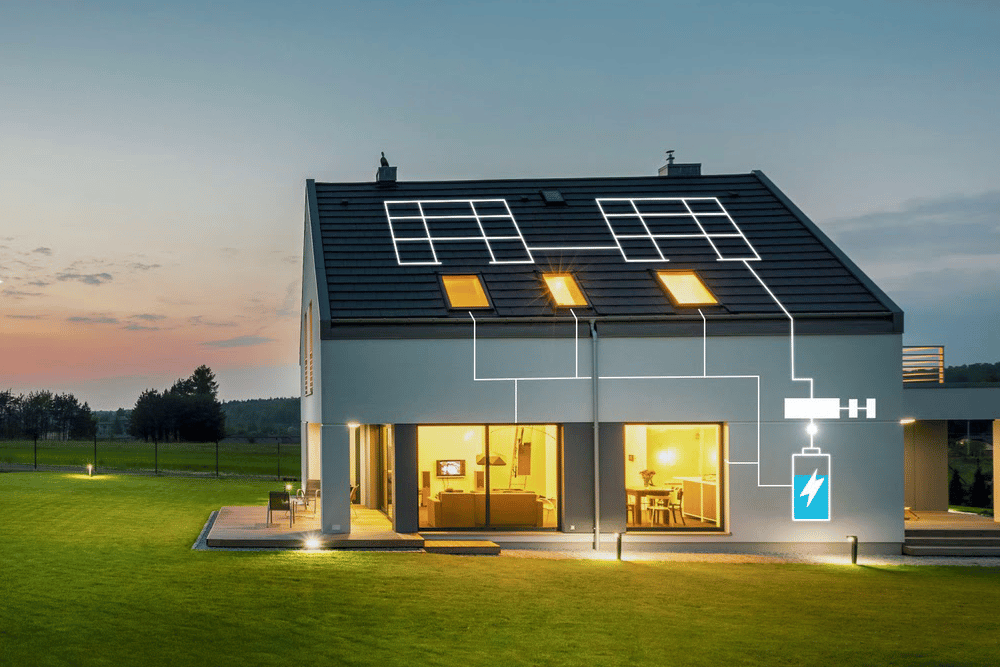
Solar panel
Solar panel efficiency is the amount of sunlight that can be converted into electricity by a solar panel. Higher efficiency panels can generate more electricity in less space, which can be useful if you have limited roof space. However, higher efficiency panels are also more expensive, so you’ll need to weigh the benefits against the cost. Check out our page to learn more about the best solar panels such as REC, LONGi and Sunpower.
Solar inverter
A solar inverter is a box between the panels and your appliances that converts DC electricity from solar panels to AC suitable for use in your home.
Not all solar inverters are equal and inverter efficiency will have a direct impact on the amount of time it takes for a system to pay for itself. Look at the inverter efficiency before purchasing a system. Obviously, the more efficient the inverter the better. Less electricity will be wasted as heat during the conversion from DC to AC. Industry leading solar inverters for grid connect systems in Australia include GoodWe, Fimer and Enphase. Be cautious of generic type brands. Visit our page to learn about the best solar inverters.
Solar battery storage
At the very least, many people are making sure their solar PV systems are battery-ready or investing in home battery storage. Batteries are frequently considered more about being as independent of the grid as possible and less about pure economics such as Tesla Powerwall2. This is especially true for residences in regions that experience regular blackouts or other issues with the supply of power.
For every kWh of charge put in, how much will the battery store and put out again? There’s always some loss, but a lithium battery should usually be more than 90% efficient. Check out our page to learn about the best solar batteries.
8. Don't forget about maintenance
Like any other piece of equipment, your solar power system will require regular maintenance to keep running smoothly. Make sure you understand what kind of maintenance your system will require, and factor this into your decision-making process.
9. Avoid high pressure sales people
High pressure sales tactics are unfortunately common in the solar industry. Try not to make decisions on the spot, just ask the person to let you consider the offer. If it’s as good as they claim, it will still be a good deal tomorrow. Pressured decisions on the spot often turn out to be less advantageous in reflection.
High pressure sales people are only one of the pitfalls that may await you when you shop for a solar power system. Learn more about the potential issues and how to avoid them in our consumers guide to solar power – avoiding tricks and traps.
One of the best buying solar tips is to make sure to use an accredited solar power system installer, certified by the Clean Energy Council.
10. Get up to 3 FREE quotes with an experienced installer!
Installing a solar power system is a complex process, so it’s important to find an experienced installer. Look for a company with a good reputation for quality installation work.
It is always wise to gather a few residential solar quotes when making a major purchase as you will find that prices vary widely between providers.It is always wise to gather a few residential solar quotes when making a major purchase as you will find that prices vary widely between providers. But don’t be just swayed by price as inferior components can reduce the up-front cost of the system. However, they may wind up costing you more in the long run in terms of reliability and efficiency.
Energy Matters has been a leader in the renewable energy industry since 2005 and has helped over 40,000 Australian households in their journey to energy independence.
Let us discuss and choose the best quote that suits your needs and budget, and can connect you with our trusted local installers, who will provide up to 3 FREE quotes for your home and business solar energy system. Get your free quotes today!
Need more buying solar tips?
Need some help with selecting a home solar power system in Brisbane? Try our solar quotes tool. You can also contact our friendly team of experts for no-obligation, no-pressure and free advice including more buying solar tips.
Solar recommendations
- Ask friends, family neighbours or colleagues who have had solar PV systems installed. Often the best buying solar tips come from right in your neighbourhood. They’ll be able to tell you about their experiences and perhaps alert you to any problems they experience. Problems that you’ll be able to avoid. Learn more about potential issues in our consumer guide to solar power – avoiding tricks and traps.
- Homeowners should determine their energy needs to ensure they choose a system that can meet their energy demands.
- It’s important to research different solar panel brands to find reliable and high-performing panels.
- Homeowners should check for government incentives to reduce the cost of their solar power system.
- Getting multiple quotes and choosing an experienced installer is recommended to ensure a quality installation at a fair price. Additionally, planning for maintenance and upgrades, considering the system’s cost, and choosing a system with a good warranty are all important factors to consider when buying a solar power system in Australia.












